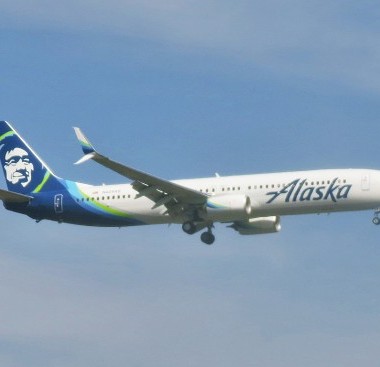Exxon says US jet fuel policy is needed to boost investment
Clearer policy from the Biden administration is needed to spur investment in green jet fuel and help bring down emissions for the aviation sector, according to Exxon Mobil Corp.
The White House wants to increase output of so-called sustainable aviation fuel, or SAF, but earlier in March missed a self-imposed deadline on guidelines on how crop-based forms of the fuel would qualify for tax credits. The administration has delayed setting rules as it tries to balance conflicting views from environmentalists and farmers during an election year.
“If we can get to a market-driven type policy, where we send a market signal, then you get all the innovation along with that, and you get other people saying, ‘OK, I have a profit incentive,’” said Jack Williams, senior vice president at Exxon and one of three top executives who oversee company operations with Chief Executive Officer Darren Woods.
It’s the second time this month that senior Exxon executives have called on the Biden administration for more government support for its low carbon initiatives. Woods said the company’s marquee Baytown hydrogen project is at risk if it doesn’t qualify for the top tax credit under the Inflation Reduction Act.
Exxon has pledged to spend more than $20 billion on low-carbon technologies. That includes a facility next to its Strathcona refinery near Edmonton, Alberta, which is expected to start producing renewable diesel for road transportation in 2025 from crops such as canola.
SAF, a cleaner-burning liquid made from waste oils or agricultural feedstock, is the primary means for the aviation industry — which has relied on fossil fuels for the last century — of reaching its 2050 net zero target.
Some producers in the nascent SAF market aim to make greener jet fuel from corn-based ethanol. Large refiners could also utilize their scale and current footprint with such practices as using captured carbon to help process fuel for planes.
SAF Projects
Williams spoke in an interview last week at a conference for SAF in Illinois, held not far from Exxon’s refinery in Joliet, where it’s considering an SAF project.
“It’s not like we like Strathcona better than Joliet,” Williams said. “We invested in Strathcona, and we haven’t yet invested in Joliet.”
Illinois last year launched a credit for $1.50 for each gallon of SAF that’s purchased in the state. Still, with the industry in its relative infancy, no one had yet applied for the credit as of March 18, Illinois Department of Revenue Director David Harris said at the conference.
That credit expires at the end of 2032 — not long enough to provide certainty for major projects that take years to engineer and construct, according to Williams.
Similar Stories

RoRo vessel Rotra Futura launched
View Article
The CMA CGM Foundation launches PharmaBox: a converted container for the storage of medicines in crisis zones
View Article
Fuel problems persist five years after IMO sulphur cap
View Article
Citywide sale-leaseback highlights Phoenix Airport submarket
View Article
Mooreast appoints Norwegian Ellingsen as CEO to drive growth in global floating offshore wind market
View ArticleEzFill signs definitive agreement for the purchase of Yoshi Mobility’s fuel division
• Agreement Expands EzFill’s Operations to Four New States • Deal Expected to Close December 2
View ArticleGet the most up-to-date trending news!
SubscribeIndustry updates and weekly newsletter direct to your inbox!





